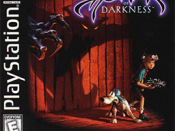Annotated Bibliography: Heart of Darkness & Apocalypse Now
Bodek, Richard. "Conrad's Heart of Darkness" The Explicator 59 (2000): 25. In this article Richard Bodek discusses the implications of Kurtz's famous final words to Marlow, "The horror! The Horror!". Of great importance to the novel's meaning is not only why Kurtz said this, but why Marlow decided to lie about it. Bodek poses the idea that in telling Kurtz's fiancée that "the last word he pronounced" was her name, Marlow was actually telling the truth. If Kurtz's intended is meant to act as a "personification of European culture in all of its ambivalence" then what she represents is, in fact, the horror to which Kurtz was referring. Bodek dissects the Kurtz's final scene, tying in many of the novella's essential themes. Among those explored are the unreliability of emotions, the relentlessness of European imperialism, and the human capacity for dangerousness.
Costanzo, Linda Cahir. "Narratological Parallels in Joseph Conrad's Heart of Darkness and Francis Ford Coppola's Apocalypse Now" Literature-Film Quarterly 20.3 (1992): 181-88. Costanzo's article is a comparative piece relating the narrative structure of the novel to the film. Although the text details some of the differences between the functions of the novella and films narrators (Marlow and Willard, respectively) it is primarily concerned the similarities between the two. Costanzo's primary argument is that both characters are used similarly to demonstrate the overwhelming conflict of morality that surrounds them. This is a conflict that can be embodied within a single person, as it is in Kurtz, or by the ethical problems brought about by imperialism and war. Costanzo shows how this environment of immorality leads to alienation in those who are able to survive it, using the two narrators as examples.
Greiff, Louis K. "Soldier, Sailor, Chef: Conrad's Ethics and...


